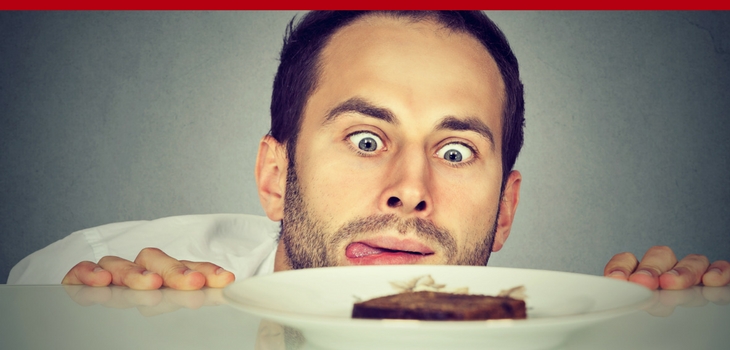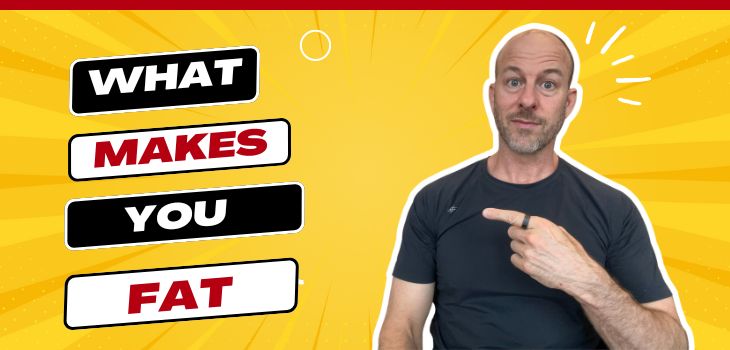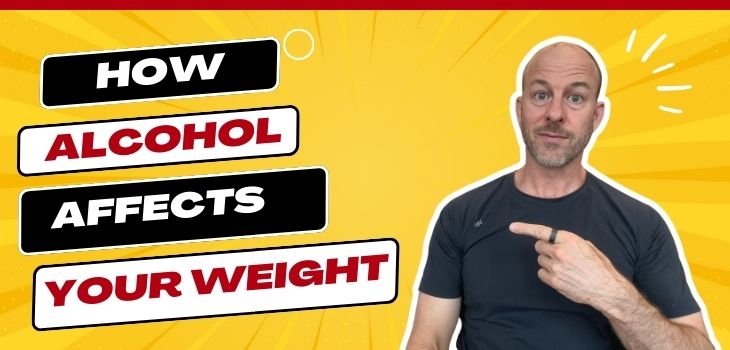Listen To Part 2 Now!
Listen To Part 3 Now!
Problems with hunger control are behind most failed attempts at weight loss. But what do you do when you’re craving food? Read this article to learn 6 strategies to control your hunger and beat food cravings.
In Part 1 of this three-part series on The Science of Food Cravings, we talked about the powerful influences that our brain’s physiology and the industrialization of our food system has contributed to the obesity epidemic.
In Part 2, we’ll discuss how to beat those food cravings so you can take back control of your weight and health.

Diets Don’t Work (You’re Fighting An Uphill Battle)
There’s a disturbing truth that is emerging from the science of obesity research. After years of study, it’s becoming clear that it’s nearly impossible to permanently lose weight—at least the way that most people go about it.
As we talked about in Part 1, your brain and your body are hard-wired to regain lost weight. This, combined with the abundance of high-calorie, hyper-palatable foods available today, makes it all too easy to put the pounds back on. And that’s exactly what happens to the majority of people who go on diets.
No One Is Coming To Save You
Call me an optimist, but I see a future where our home and work environments focus on our health. Homes will have biological lighting that will help us wake up in the morning and fall asleep at night. Maybe an AI will track our heart rate variability (a marker of stress) and other biometrics through a wearable. Then it’ll use that information to optimize our homes to reduce stress and improve our mood when we get home.
Work places will help us stay fit and manage stress by offering things like treadmill desks, healthy food, meditation classes and on-site gyms. And they’ll do it because they’ll not only care more about their employees, but they’ll make more money too. They’ll realize that poor health kills their employee’s productivity. And less productivity equals less profitability for the company.
But that’s not reality…yet.
Right now we have to deal with the way things are. And the reality of our current situation is that most workplaces are stressful and offer the hyperpalatable foods that many people use to comfort themselves.
Since that’s the case, you need solid, effective strategies to deal with your current situation.
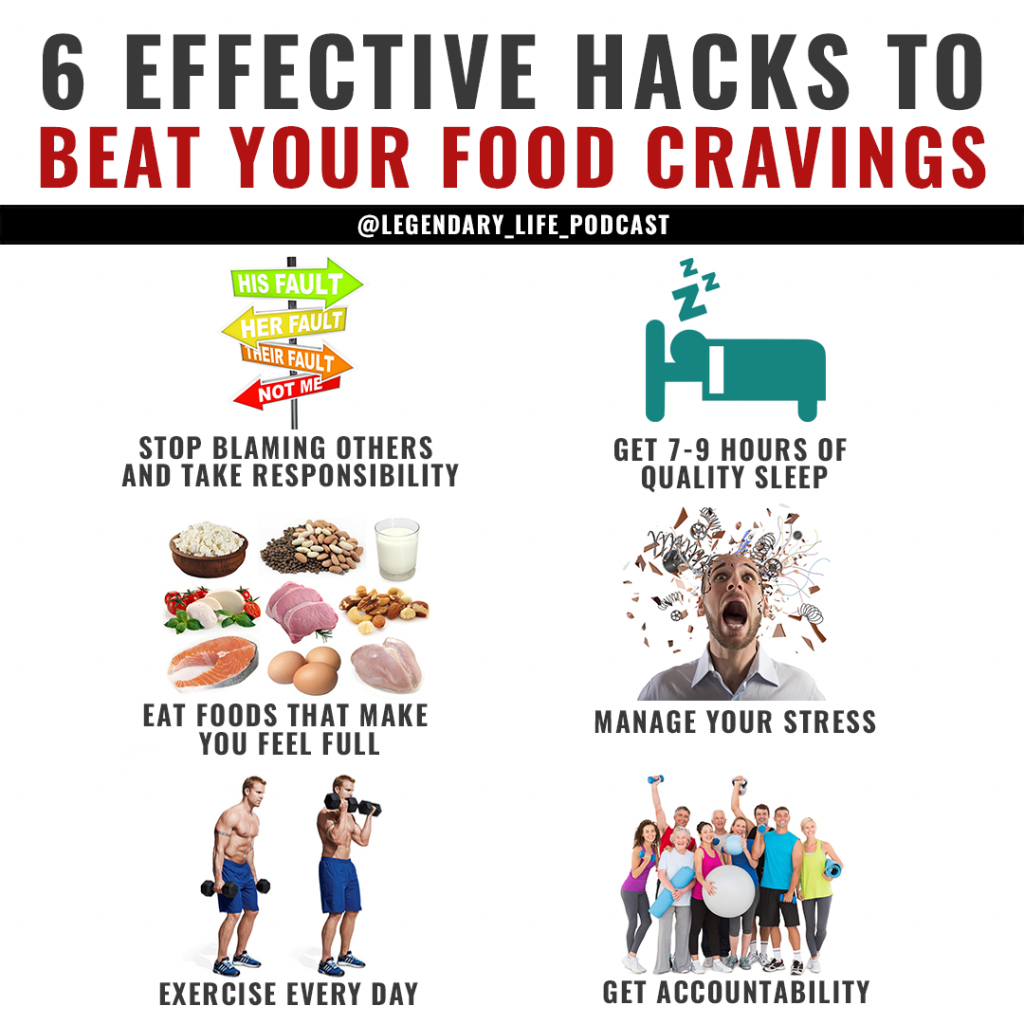
Strategy #1: Stop Blaming Others And Take Radical Responsibility
In today’s society, it’s common to blame Big Food, Big Pharma, the government for, well, just about all the illnesses and health problems we have. And I’ve given you another thing to blame your weight problem on by telling you that you’re brain and body are working against you.
The fact is that there’s probably no Illuminati conspiracy to keep the population fat and sick. And our bodies don’t hate us. What I tell people is that the only conspiracy that exists is to make money. And companies have found that people buy calorie-rich, hyperpalatble food like cookies and potato chips over kale and broccoli. And our bodies evolved to help us survive food shortages.
So if you’re expecting food companies to take the lead on helping you lose and keep off the weight, you’re going to be waiting for a very, very long time. And if you want evolution to catch up, you’re going to wait even longer.
Instead, I want you to develop an “internal locus on control.” externalizes their locus of control. You may have never heard of this “locus on control” concept before. But it’s critical that you understand it
The word “locus” just a fancy term for “place.” Your locus or place of control can be internal or external. An internal locus of control means you believe that you have the ability to control your environment. An external locus of control means that you believe that you’re at the mercy of your environment and you have little control over what happens to you.
I first learned about this concept when I was in my late 20s. I felt like a victim with everything I’ve been through (you can read my story of tragedy here) but I was desperate to make a better life for myself.
So I had to take a hard look at my life and admit that I was in much more control of it than I felt. And whenever I feel the “why me” mentality slipping back into my life, I force myself to take a problem-solving approach instead.
So instead of saying, “Why did all these bad things happen to me in life?” I started asking, “what skills do I need to develop and what actions do I need to take to improve my happiness and success?”
This paradigm shift has made my life infinitely better and it’ll work for you too.
Aside from my experience, there are decades of research showing that people with an internal locus of control have a stronger belief in their ability to succeed in tasks and are more successful at achieving their goals.
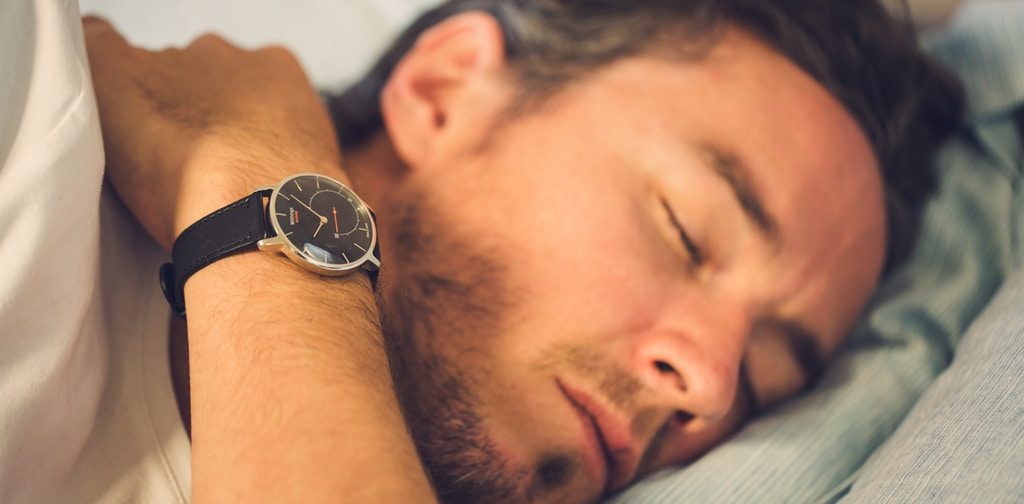
Strategy #2: Get Enough Sleep
Sleep loss has become extremely common. According to the Centers for Disease Control and Prevention, about a third of Americans get less than seven hours of sleep a night. A 2013 Gallup poll found that U.S. adults sleep an average of 6.8 hours per night and forty percent of adults report sleeping six hours or less.
It’s been known for a long time that skimping on sleep has been connected with overeating, poor food choices and weight gain. Research has shown time and again that sleep loss raises the risk of obesity, but the reasons weren’t clear. Previous studies have shown that sleep loss results in a higher level of the hunger hormone grehlin and a lower level of the satiety hormone leptin.
Now a 2016 study published in the journal SLEEP sheds light on why sleep deprivation leads to weight gain. The primary mechanism seems to be that sleep loss causes cravings for tasty yet high-calorie foods that we know we need to avoid to keep our body fat levels in the healthy range.
After several nights of poor sleep, the young and healthy volunteers who took part in the study reached for “highly palatable, rewarding snacks,” meaning cookies, candy and chips even though they ate a big meal two hours before. The effects of sleep loss on appetite were most powerful in the late afternoon and early evening.
Why does this happen?
If you’ve ever smoked marijuana, you may be familiar with the marijuana “muchies.” Sleep loss activates this same system (known as the endocannabanoid system) in your brain. When you don’t get enough sleep, blood levels of a natural marijuana-like chemical (known as endocannabinoid 2-arachidonoylglycerol or simply 2-AG) gets elevated. This higher 2-AG level enhances the joy of eating–particularly the guilty pleasures gained from sweet or salty, high-fat snacks.
It’s also important to note that those who sleep less have more time to eat and may be too tired to exercise. And obesity can lead to breathing problems like obstructive sleep apnea that can disrupt sleep patterns. So this can be a vicious cycle that gets out of control if you’re not aware of what’s happening.
So if you want to beat your food cravings, you need enough quality sleep. Want to upgrade and optimize your sleep quality? Then…
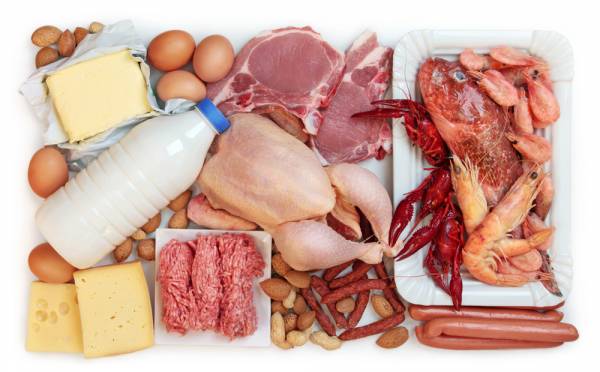
Strategy #3: Eat Foods That Make You Feel Full
Have you ever noticed that you get full fast by eating a steak, baked potato and salad (one of my favorite meals) but you can eat an entire box of donuts or bag of cookies and still be hungry?
That’s because different foods have different effects on your sense of fullness after eating.
For example, it’s well known that protein has satiating effect on hunger. Numerous studies have found that:
- A higher protein intake helps prevent weight regain after losing it on a diet.
- A higher protein intake reduces appetite and may make you more sensitive to the satiety hormone leptin.
So you feel fuller and more satisfied after eating more protein. That why we use higher protein meal plans in our Legendary Lean group-coaching program.
But protein isn’t the only food that helps you control your hunger to lose weight.
In fact, research has shown that dietary fiber can also help control your appetite by increasing satiety.
I’m sure you find all that as intriguing as I do. But you may be wondering what foods to actually eat and which ones are the best for controlling hunger.
Fortunately, research published in European Journal of Clinical Nutrition tested which foods worked best for controlling hunger and reducing appetite. The researchers tested 38 different foods up and developed a Satiety Index (SI) for foods based on their findings. They found that boiled potatoes ranked the highest and croissants ranked the lowest for reducing hunger and controlling appetite.
Here’s a chart that shows all the foods they tested and how they ranked for inducing satiety and controlling hunger:
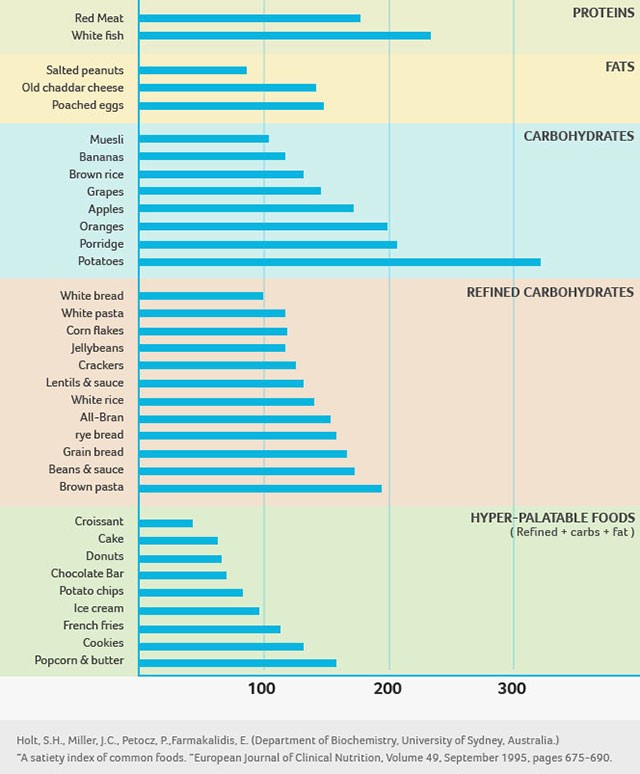
Start eating more protein, fibrous veggies and choose satiating foods from the list above to keep your hunger and cravings in check.
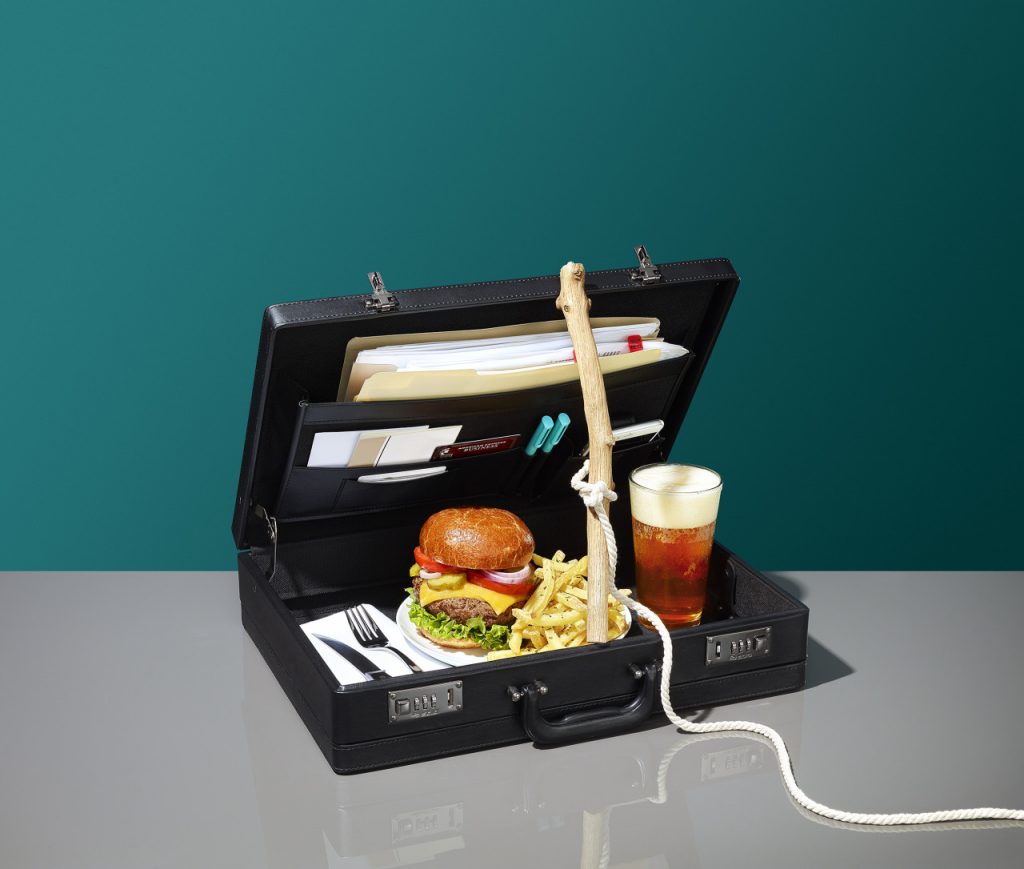
Strategy #4: Manage Your Stress
Most people have experienced an increase in hunger or food cravings due to a stressful situation. Maybe it’s a fight with your partner or pressure at work. Either way, many of us turn to food to calm our negative feelings.
Emotional eating (also called stress eating) is using food to make yourself feel better. In other words, you eat because you’re feeling bad but not because you’re hungry and need food.
Why do we do this?
It comes back to brain chemistry again. Although we talked about dopamine leading to cravings in the Part 1 of this article, there are other brain chemicals that play a part in why we turn to food to feel better.
You’ve probably heard of opiate addiction being a major problem in America. Well, certain foods act on our internal opioid system—the same system that opiate drugs work on.
It’s much more complicated than this but dopamine seems to motivate you to seek out and eat food and naturally produced opioids make us feel better after eating.
So what do we do to deal with this?
The answer to that question can be an entire article by itself. But the short answer is to develop better coping habits.
- Exercise
- Meditation (listen to my meditation episode)
- Yoga
- Spending more time with friends and family
- Going to religious services
Related Post: 11 Ways To Relieve Stress That You Can Start Today

Strategy #5. Exercise Every Day
Our ancestors had a different word for exercise. It was called life. But our modern society doesn’t require much of us physically unless there’s a disaster of some sort.
And that’s part of the problem that we’re facing today with the obesity and chronic disease epidemic. In fact, physical inactivity is a primary cause of most chronic diseases. And not getting enough exercise is a high-risk behavior up there with smoking and drinking too much alcohol.
Regular exercise can also help you manage your weight and appetite in several ways.
- Exercise is a powerful appetite suppressant. Have you ever been hungry but started working out anyway only to feel your feelings of hunger disappear? That’s because exercise causes an acute stress response that will reduce your feelings of hunger immediately.
- Exercise makes you burn more calories. This decreases the chances of overeating by giving you a buffer for how much food you can eat. When you’re working out hard, you need more energy. This is even truer if you’re performing resistance training, as you’ll be able to build muscle and burn fat at the same time.
- Exercise helps you sleep better and reduces stress. Those two things alone would be enough to justify including regular exercise into your life.
- Exercise will make you look better naked. Although the health benefits cant be understated, they don’t tend to get people that motivated. But once you see a difference in your body, exercise becomes a self-perpetuating cycle where you’re motivated to keep doing it because you see and feel the difference it makes. There’s even research showing how powerful this effect is.
The bottom line is that regular exercise will help you manage both your food cravings and weight. So get something in daily.
So what types of exercise should you do? I recommend shooting for 3-4 resistance training workouts per week and getting in your 8-10k steps on the off days.

Strategy #6. Don’t Do This Alone
One of the most important and underappreciated factors that will help you to either succeed or fail with controlling your hunger, cravings and weight is the people who you spend time with.
For decades, scientists have suspected that behaviors are “contagious.” But there wasn’t solid evidence to back up this idea until a study was published in 2007 in The New England Journal of Medicine.
The study was titled The Spread of Obesity in a Large Social Network over 32 Years and looked into how the people in our lives influenced a number of factors—including obesity.
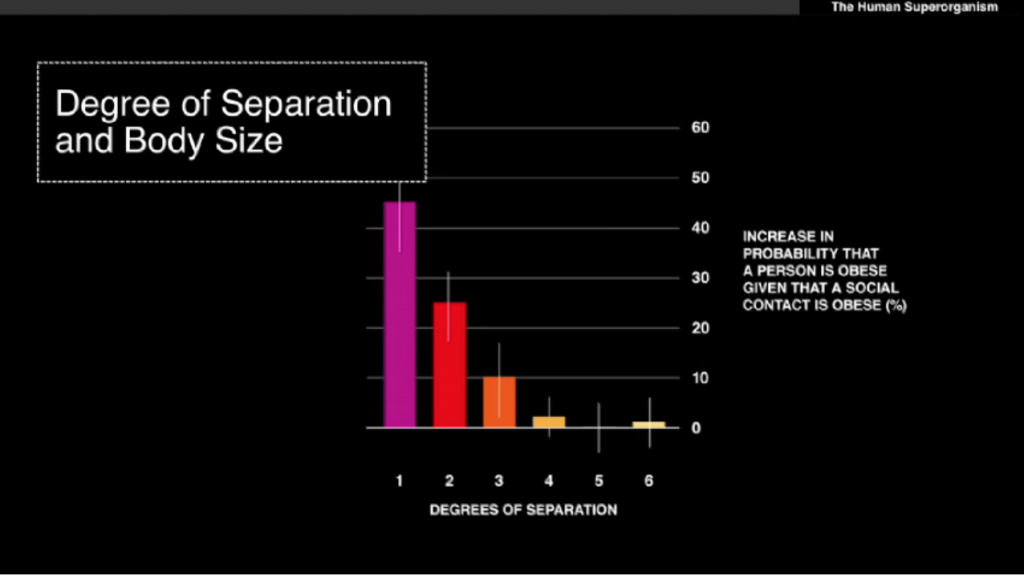
The researchers found that:
- You’re risk of obesity is 45% higher if you have obese friends
- You’re risk of obesity is 25% higher if your friend’s friends are obese
- You’re risk of obesity is 10% higher if your friend’s friend’s friends (someone you probably don’t even know) are obese.
Watch his eye-opening TED talk where he shares these research finding in detail here:
That’s crazy, right? We think we’re so independent from the people we know and that we’re not easily influenced. But the data says we’re wrong about that. Very wrong.
Although the science is surprising, this is the message that we’ve been hearing from personal development gurus for decades.
Jim Rohn said, “You’re the average of the five people you spend the most time with.”
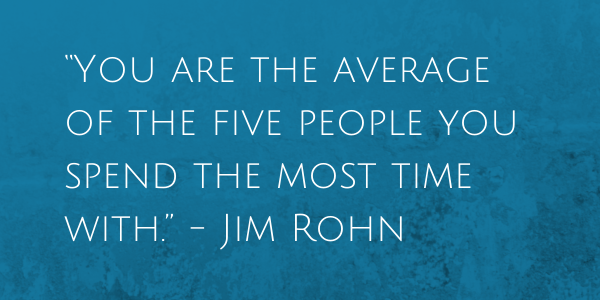
I’ve heard Tony Robbins say, “Show me your friends and I’ll show you your future.”

So this concept has been around for ages—even though science is now validating it.
It’s a stunning revelation. Especially if you consider who’s in your life now.
Don’t worry. You don’t need to hide from your unhealthy friends. But you do need to consider their effect on your life. If you find yourself engaging in unhealthy habits as a direct result of spending time with them, then you need to limit how often you hang out with them if you’re serious about making a change.

Everyone Needs A Coach
When I had Coach Micheal Burt on my show, he said:
[tweet_box design=”box_16_at” float=”none”]“Everyone needs a coach. They challenge us to do the things we don’t want to do. They’ll have conversations with us that we don’t want to have. And a great coach will help us become something we didn’t think we could become.”[/tweet_box]
That brings me to my next point…
You need a coach. Actually I shouldn’t say need because you’re not going to die without a coach. But you’ll never become what you want to become without one.
I’m not just saying that because I sell coaching. I’m saying it because I’ve lived it.
When I started Brazilian jiu-jitsu, I was terrible at it. But I hired a jiu-jitsu coach (I called him sensei) for 1-one-1 lessons and I went on you win a state championship as a result.
When I started building my online business, I had ZERO idea of what to do other than putting together a website. But I hired several coaches throughout the years and I’ve been able to turn what I do into a pretty cool business.
And it’s not just me either…
If you think about your life and the successes you’ve had, I bet you’ll find a mentor or coach behind your achievement.
Several studies have also shown how powerful coaching for weight loss can be.
A research team funded by the NIH found that obese adults who received weight loss coaching via phone, Web, and email contact, as well as support from their primary care providers often lost a significant amount of weight—5 percent or more of their starting body weight—and kept it off for two years.
Researchers recruited 415 volunteers from six doctor’s offices in the Baltimore area. These were obese adults who had at least one cardiovascular risk factor such as high blood pressure, high cholesterol, or diabetes.
All the participants were assigned to one of three groups:
- A control group received weight loss information in printed materials and a website link.
- A remote intervention group received phone, Web, and email support from trained weight loss coaches without any face-to-face contact.
- An in-person intervention group had the same phone, Web, and email support plus individual and group sessions with coaches.
The researchers found that participants in both intervention groups achieved substantial weight loss with or without in-person coaching sessions.
Forty-one percent of participants in the in-person group and 38 percent in the online group lost 5 percent or more of their initial body weight.
The group who only received printed materials and a website link only had 19 percent success losing 5 percent or more of their weight.
Hopefully those numbers were clear. But in case they weren’t, the study suggests that you can double your chances of losing weight and keeping it off if you just receive coaching. Coaching even works if you don’t meet in person.
Of course, this isn’t news to me at all. I’ve been a coach for over 19 years. I’ve seen people who were struggling to get in shape achieve impressive results simply by having a coach guide them through the process. Whether they were getting injured because their workout program was inappropriate for them or whether they were struggling with their nutrition to lose weight, coaching has helped every single person I’ve ever worked with (at least those who took it seriously).
The bad news is that coaching can be too expensive for a lot of people. My personal training and 1-on-1 online coaching are out of most people’s budgets.
The good news is that after realizing that I was only sharing my effective fat loss methods with the affluent, I decided to create an affordable program that anyone would be able to join and get great results from.
That’s how my Legendary Lean Group Coaching program was born. We’ve put together a powerful coaching experience that uses:
- Lifestyle counseling. We teach you how to develop and stick with healthier eating and physical activity habits.
- Information about getting enough sleep and managing stress.
- Ongoing feedback, monitoring, and support throughout the entire program.
- A plan for keeping the weight off so that you keep your new body.
These are the exact recommendations proven to be effective in weight loss research according to the NIH.
With Legendary Lean, you’ll receive:
- Organized, weekly lessons, offered online to help you with your personalized goals.
- Support and coaching from yours truly to help meet your goals
- A plan to track your progress on changing your lifestyle habits, such as healthy eating and physical activity.
- Regular feedback on your goals, progress, and results through our exclusive app
- The option of social support in a group on our exclusive app.
In other words, you’ll get everything you need to get the results you’ve been looking for.
The “I Can Do This On My Own” Fallacy
Although I’d be honored to have you in my coaching group, if you don’t feel like it’s a good fit for you, I’m still going to recommend that you get coaching.
You’ve probably heard the statistic that 95% of people who go on a diet regain the weight they lose. I’ve even quoted that before. After searching for the origin of that statistic, I haven’t been able to find it.
However, the reality is that in spite of being inundated with health blogs, fitness Youtube channels, and nutrition podcasts more than 2 out of 3 Americans is overweight or obese. And chronic diseases like diabetes and high blood pressure are on the rise.
If you haven’t already been successful, then there’s a good chance that you’re missing something critical in your program.
Even if you don’t choose Legendary Lean, I highly recommend that you get some form of coaching to help you achieve your goals.
Don’t do it alone. Choose a coach you trust and make it happen!
Like this show? Please leave us a review here — even one sentence helps! Consider including your Instagram handle so we can thank you personally.


